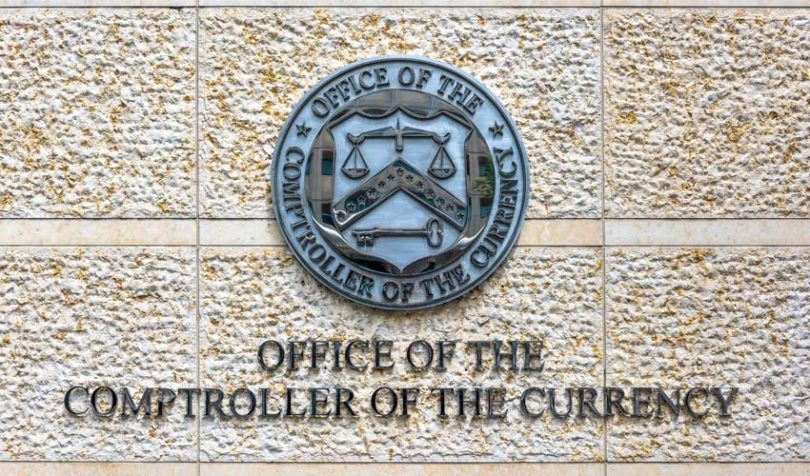The U.S. Office of the Comptroller of the Currency (OCC), which administers the federal banking system, is seeking public comment on proposed rule changes. Most of the potential updates relate to innovations where existing rules may be outdated. Those innovations include cryptocurrency dealings or using blockchain or distributed ledger technologies (DLT) in the back office.
Notably, the new acting Comptroller of the Currency as of last week, Brian Brooks, was formerly Chief Legal Officer at cryptocurrency exchange Coinbase. He joined the OCC in April and initially Chaired the Technology and Systems Subcommittee.
The request for comment asks how DLT is being used and in what activities. It lists potential activities as identity verification, credit underwriting or monitoring, payments processing, trade finance, and records management. The OCC seeks feedback on what areas require clarification in regulatory guidance.
Other areas covered include new payment technologies and their potential impact on the banking industry, and compliance or regtech tools.
The queries re cryptocurrencies refer to “reducing barriers”:
“What types of activities related to cryptocurrencies or cryptoassets are financial services companies or bank customers engaged? To what extent does customer engagement in crypto-related activities impact banks and the banking industry? What are the barriers or obstacles, if any, to further adoption of crypto-related activities in the banking industry? Are there specific activities that should be addressed in regulatory guidance, including regulations?”
The feedback request doesn’t differentiate between different types of cryptoasets.
In the past, the Bank of International Settlements (BIS) regarded cryptocurrencies as of limited risk because of the relatively small scale and low level of interaction with the banking system. However, both the BIS and the G7 have concerns over a global stablecoin such as Libra.
That said, the Basel Committee previously outlined a list of four steps to take if banks are getting involved in crypto-assets. They include due diligence of the risks, appropriate governance, anti-money laundering and steps to manage risk given the potential for significant losses.






